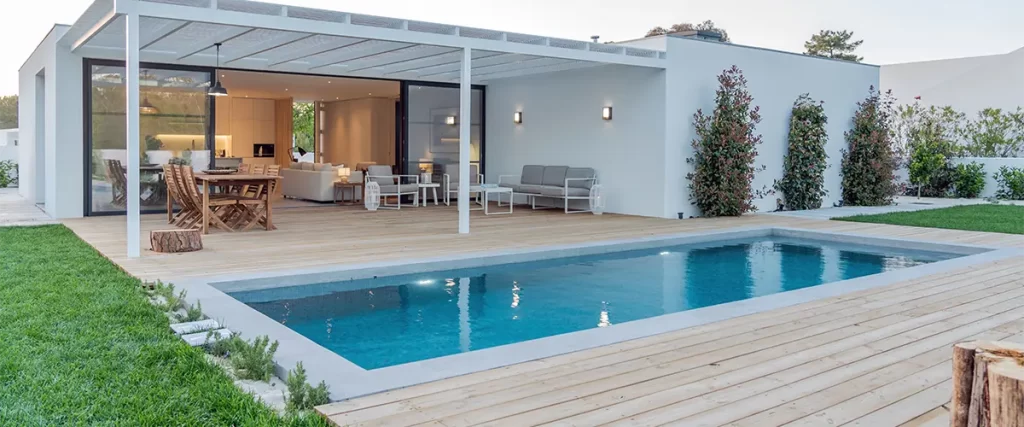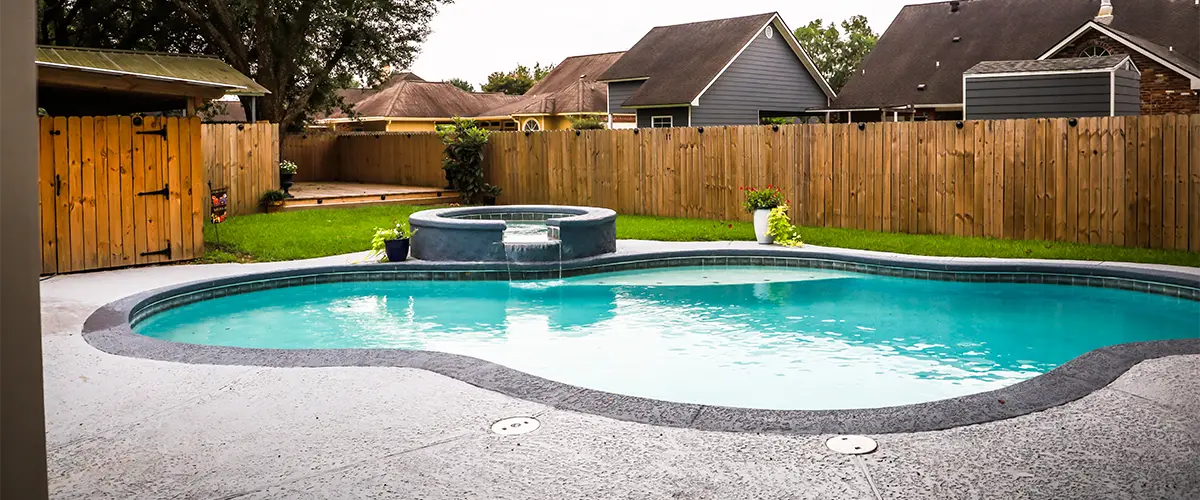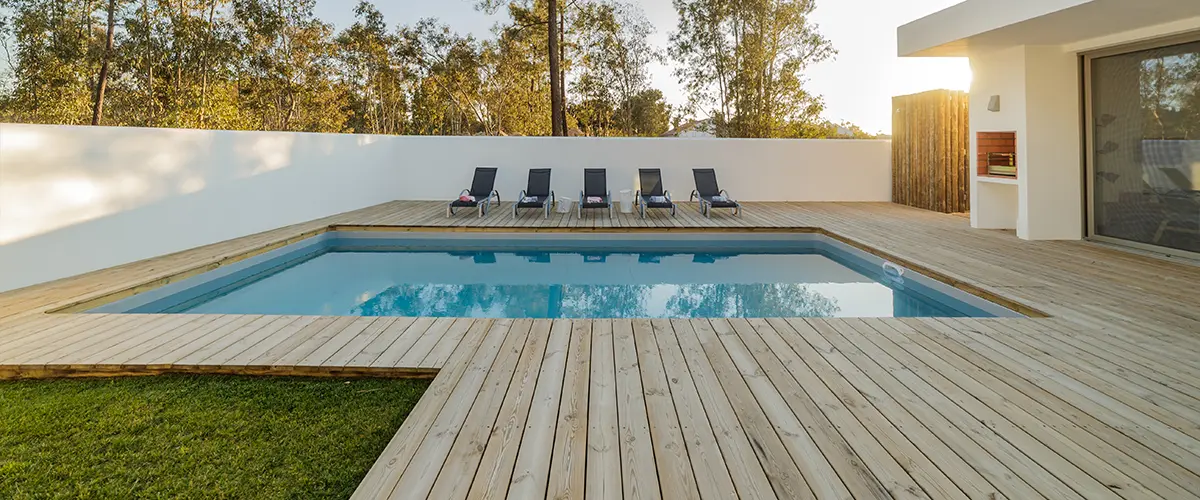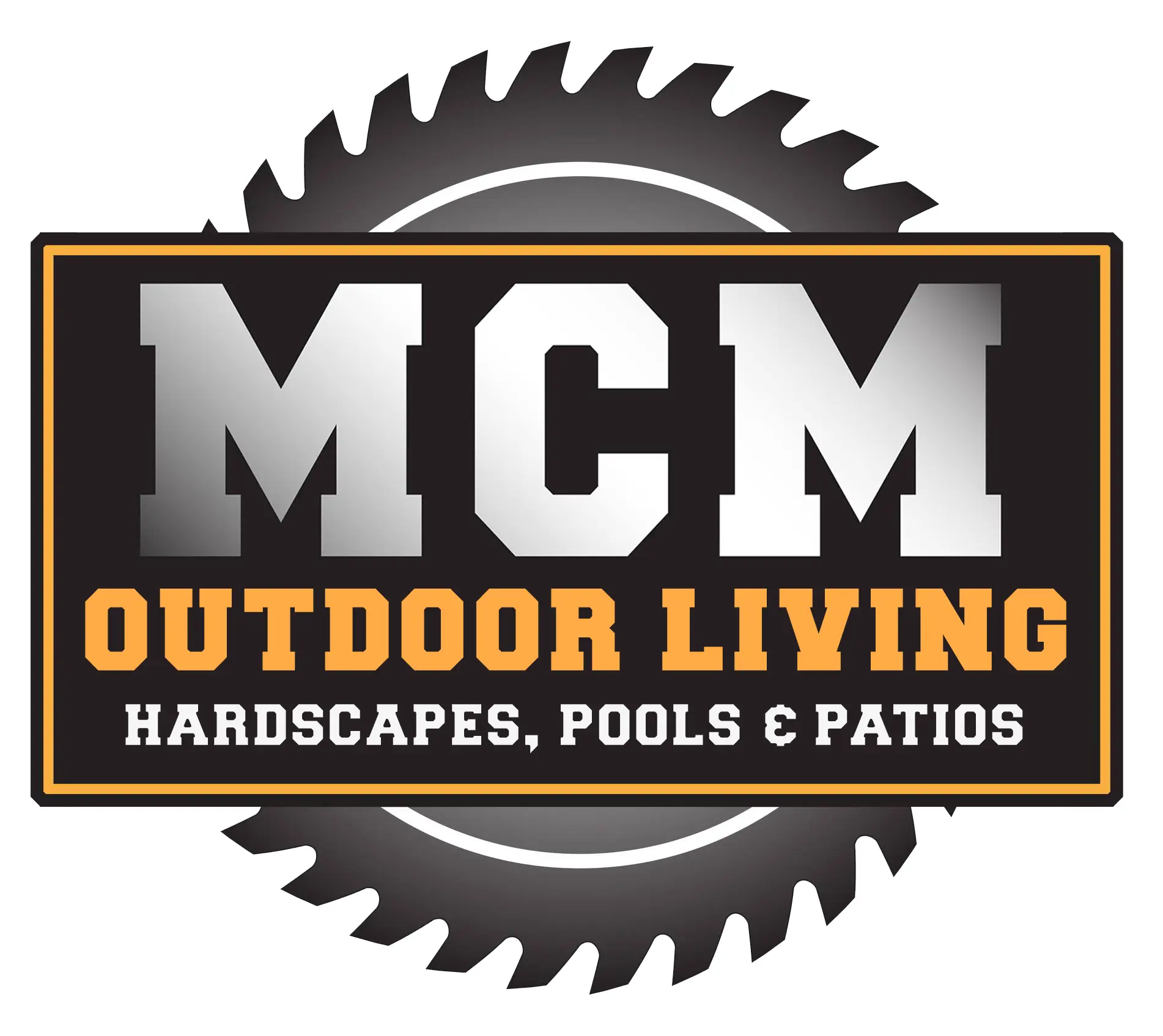Traditional Pools Vs Modular Pools
Deciding on the best type of swimming pool for your backyard can be a daunting task. Traditional pools and modular swimming pools each come with their unique set of advantages as well as complexities to consider.
In this blog post, we will guide you through these considerations – comparing costs, installation processes, features, and maintenance requirements for both types of pools.
Read on to find valuable insights that will make your pool selection process smoother than ever.

Key Takeaways
- A traditional, in ground pool costs more than modular pools.
- Modular pools can be set up fast and come with many choices.
- Both pool types need cleaning, but modular ones are cheaper to keep.
- Fiberglass, used in modular pools, is tough and lasts a long time.
Cost, Installation, and Features
Cost comparison
Starting with the cost comparison, making an informed decision between traditional pools and modular pools will largely depend on your budget consideration. Here’s a general breakdown:
| Traditional Pools | Modular Pools | |
|---|---|---|
| Initial Installation Cost | Can range anywhere between $20,000 to $100,000 depending on the size, location, and custom features. | Generally cheaper, costing between $10,000 to $50,000 for the same factors as traditional pools. |
| Running Cost | More expensive because they require significant energy to heat, often needing more chemicals to maintain. | Less expensive to run due to better heat retention and fewer chemicals needed for maintenance. | Resale Value | They can add significant value to your home, depending on the pool’s quality and the demand in your local real estate market. | May not add as much value to your home as traditional pools but still a plus in the real estate market. |
As the homeowner, you need to weigh your financial capacity with your preferred pool type. While traditional pools generally have a higher installation cost, they can potentially add more value to your property. On the other hand, modular pools may offer a more affordable option, both in terms of initial costs and running expenses.
Installation process
Let’s talk about how pools are put in place.
- Traditional pools need a lot of work. The hole must be dug first. Then, the pool frame is made using shotcrete or gunite.
- After that, it has to dry for a few days.
- Pool design is key. But with concrete pools, changing the design midway is tough.
- It’s a different story with modular pools. They arrive at your house already made.
- Installation of aboveground and inground pools is fast. Some can be ready in just one day!
- With fiberglass pools, you don’t have to wait for the material to dry.
- Vinyl liner pools are easy too. The liners get spread out, then filled up with water.
- Soil type does not matter much to modular pools.
Features and customization options
Modular pools offer many choices to make them unique. You can pick the shape, size and depth that suits you best. Some even let you add fun extras like slides or diving boards. Traditional pools also come in different shapes and sizes but have fewer options for fun extras.
Also, modular pools are often quicker to set up than traditional ones because they come pre-made from the factory. This means your swimming time starts sooner with a modular pool!

Maintenance and Durability
Both traditional and modular pools demand different maintenance needs; we will take a closer look at these requirements, from regular clean-up to system check-ups. Further, the discussion would also shed light on pool durability factors such as construction material resistance against weather elements and general wear-and-tear over time, thus providing insights into their long-term performance.
Maintenance requirements and costs
Maintaining your pool, whether it is a traditional or modular version, is a crucial aspect of ownership. Both types have specific maintenance needs and associated costs, which may influence your decision process. Below is a comparison table of the maintenance requirements and costs for traditional pools and modular pools.
| Traditional Pools | Modular Pools | |
|---|---|---|
| Maintenance Requirements | Regular cleaning is required, including skimming, vacuuming, and brushing. Chemical balance must be routinely checked and adjusted. Filter systems need to be cleaned regularly. | Similar to traditional pools, regular cleaning is required, including skimming, vacuuming, and brushing. Chemical levels need routine checks and adjustments. Modular pools may require less frequent filter system cleaning due to their design. |
| Maintenance Costs | Costs can be high, especially if professional cleaning services are used. Chemicals, replacement parts, and utility costs for operating the pump and heater can add up. | Costs can be lower than traditional pools, primarily if self-maintained. Their design often leads to lower chemical usage and less frequent need for replacement parts, leading to potential cost savings. Utility costs for operating the pump and heater are comparable to traditional pools. |
Durability and longevity
Modular pools are tough. Fiberglass, the material used for their build, is sturdy and does not break or crack easily. This makes it stand up against rough weather conditions. In comparison, traditional pools may need repair work with time.
The lifespan of a modular pool is long too! Many last over 25 years without needing major fixes or updates. Traditional swimming pools can also last a while but might require some upkeep such as re-plastering or liner replacement to stay in good condition.

Conclusion
Choosing the right pool is key. You’ll want to consider the cost, the time of installation, the maintenance costs and time, and how many features you can add to costomize your backyard to match your needs.
While traditional pools offer great design but may cost more, modular pools are quick to install and easy on your pocket. If you have the money and you want the highest quality pool, custom, tiled ground pools will be ideal.
Regardless of your choice, our experts at MCM can guide you through and provide helpful insights to determine which pool is best for your particular needs. Contact us today at (469) 583-6213 or request a free consultation now!
